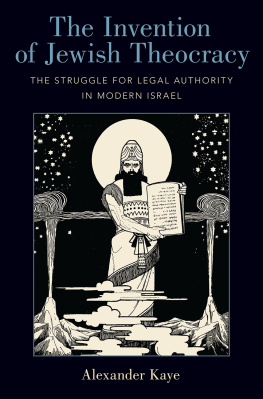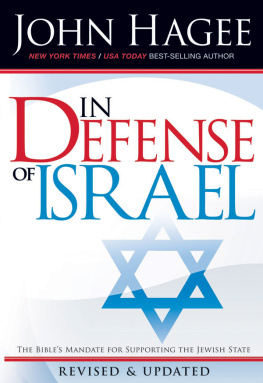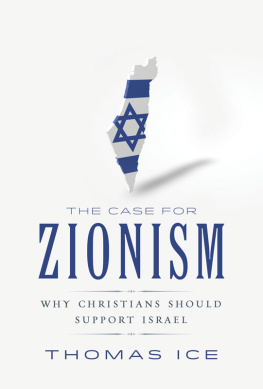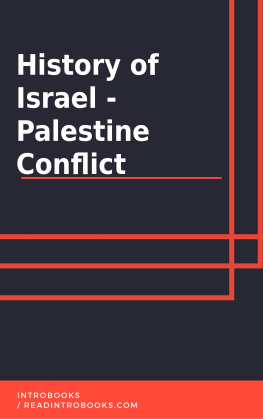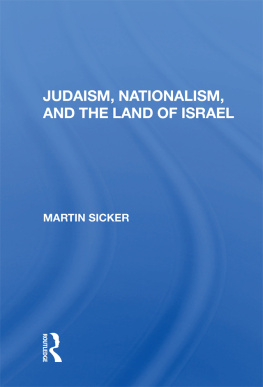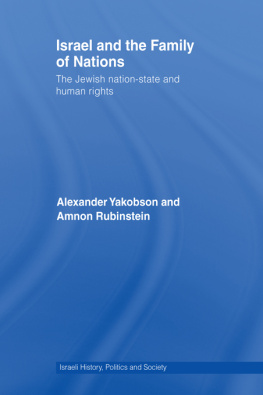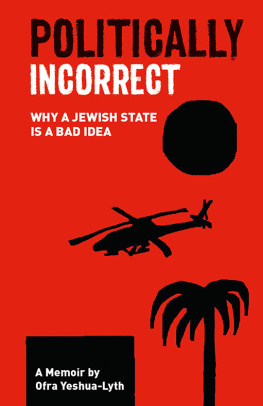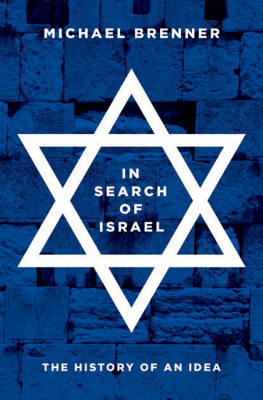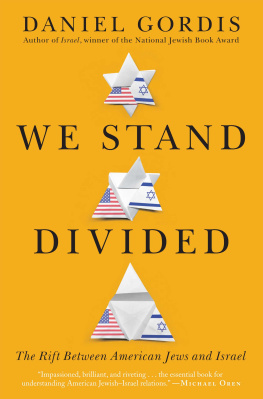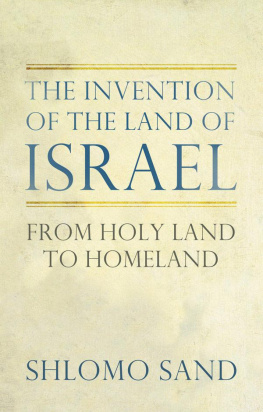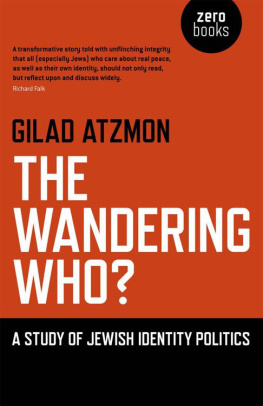THE INVENTION OF JEWISH THEOCRACY

Oxford University Press is a department of the University of Oxford. It furthers the Universitys objective of excellence in research, scholarship, and education by publishing worldwide. Oxford is a registered trade mark of Oxford University Press in the UK and certain other countries.
Published in the United States of America by Oxford University Press
198 Madison Avenue, New York, NY 10016, United States of America.
Oxford University Press 2020
All rights reserved. No part of this publication may be reproduced, stored in a retrieval system, or transmitted, in any form or by any means, without the prior permission in writing of Oxford University Press, or as expressly permitted by law, by license, or under terms agreed with the appropriate reproduction rights organization. Inquiries concerning reproduction outside the scope of the above should be sent to the Rights Department, Oxford University Press, at the address above.
You must not circulate this work in any other form and you must impose this same condition on any acquirer.
Library of Congress Cataloging-in-Publication Data
Names: Kaye, Alexander, author.
Title: The invention of Jewish theocracy : the struggle for legal authority
in modern Israel / Alexander Kaye.
Description: New York : Oxford University Press, 2020. |
Includes bibliographical references and index. |
Identifiers: LCCN 2019035294 (print) | LCCN 2019035295 (ebook) |
ISBN 9780190922740 (hardback) | ISBN 9780190922764 (epub) | ISBN 9780190922757
Subjects: LCSH: Religious ZionismIsraelHistory. | Religious ZionismPhilosophy. |
Religious ZionistsIsraelAttitudes. | Judaism and stateIsrael.
Classification: LCC DS150.R39 I7545 2020 (print) | LCC DS150.R39 (ebook) |
DDC 322/.1095694dc23
LC record available at https://lccn.loc.gov/2019035294
LC ebook record available at https://lccn.loc.gov/201903529
For my parents
Contents
This work owes a great debt to the generosity of family, friends, colleagues, and teachers. These brief words cannot do justice to the thanks that they are due.
Rabbi Dr. Yehuda Abel, Rabbi Mordechai Friedman, and Rabbi Dov Linzer taught me how to read and appreciate Jewish texts. My historical training began in earnest at the University of Cambridge, and I still try to follow the example of Annabel Brett, Chris Clark, Martin Golding, and, especially, Quentin Skinner, who set me on the path of the history of political thought. David Abulafia, the supervisor of my undergraduate thesis and M.Phil. dissertation, encouraged me to write Jewish intellectual history for the first time. My advisor at Columbia University, Michael Stanislawski, shaped me as a scholar and continues to be a valued mentor. Samuel Moyn and Suzanne Last Stone have been generous guides and inspirational teachers.
I am deeply grateful for the privilege of studying under Professor Yosef H. Yerushalmi and of serving as his last graduate teaching assistant. In the time following his retirement, which turned out to be the last years of his life, he continued to offer both scholarly advice and empathy. He taught me how to be a Jewish historian.
The following deserve special recognition for their contributions to this project: Leora Batnitzky, Elisheva Carlebach, Arye Edrei, David Ellenson, Moshe Halbertal, Lynn Kaye, Assaf Likhovski, Yehudah Mirsky, David Myers, Derek Penslar, Amihai Radzyner, Jonathan Sarna, Nomi Stolzenberg, Joshua Teplitsky, and Steven Wilf.
This research has been enhanced by the knowledge and insight of innumerable people, who have shared ideas, alerted me to archival material, read drafts, and supported my work in other ways. They include Hanina Ben-Menahem, Hillel Ben Sasson, Volker R. Berghahn, Michael Brenner, Naomi Brenner, Rabbi Shear Yashuv Cohen, Levi Cooper, Jeremy Dauber, Yaacob Dweck, Matt Goldish, Jonathan Gribetz, Aviad Hacohen, Yitzchak Herzog, David Horowitz, Motti Inbari, Ronit Irshai, Amos Israel, Bernard Jackson, Robin Judd, David Kaye, Shira Kohn, Eugene Korn, Yehuda Kurtzer, Shahar Lifshitz, Menachem Lorberbaum, Yair Lorberbaum, Shaul Magid, Tamara Mann, Jessica Marglin, Menachem Mautner, Ari Mermelstein, Naphtali Meshel, Douglas Morris, Kenneth Moss, David Novak, Daniel Price, Lawrence Rosen, Tamar Ross, Yaakov Ross, Pinchas Roth, Alan Rubinstein, Avi Sagi, Arieh Saposnik, David Schorr, Dov Schwartz, Alan Segal, Joshua Shanes, Anita Shapira, Eugene Sheppard, Elana Stein-Hain, Michael Walzer, Itamar Warhaftig, Yaakov Warhaftig, David Weinfeld, Julie Yanofsky-Goldstein, Jennifer Young, and Ron Zweig.
My research was facilitated by the staff at a number of archives, particularly those at the Central Zionist Archive, the Israel State Archive, the archives of the Religious Kibbutz Movement at Kvutsat Yavneh, the personal papers of Rabbi Isaac Herzog, which were housed in Hekhal Shlomo in Jerusalem when my work on them began, the Religious Zionist Archives at Mosad Ha-rav Kook in Jerusalem, and the Religious Zionist Archives at Bar-Ilan University Library. I am grateful to the foundations and institutions that have supported my work. They include the ACLS/Mellon Foundation, the Foundation for Jewish Culture, and the Memorial Foundation for Jewish Culture. My research has benefited from fellowships and visiting scholarships at Cardozo Law Schools Center for Jewish Law and Contemporary Civilization, the Herbert D. Katz Center for Advanced Judaic Studies, the Yad Hanadiv/Beracha Foundation, the David Berg Foundation Institute for Law and History at the Buchmann Faculty of Law at Tel Aviv University, and the Kogod Research Center for Contemporary Jewish Thought at the Shalom Hartman Institute in Jerusalem. The publication of the book was supported by the Institute for Israel and Jewish Studies at Columbia University and the Schusterman Center for Israel Studies at Brandeis University. I offer my thanks for all the support of colleagues and friends at my home institutions these past years: Princeton University, The Ohio State University, and Brandeis University. I am grateful to the people of Oxford University Press, who have been steady companions in bringing this book to fruition. I have special gratitude for my editor, Nancy Toff, whose advice careful comments helped to shape the voice of the final draft.
Finally, I want to express my gratitude to my family. I owe everything to my parents, David and Lindsey Kaye. I could do no better than to emulate the love, grace, and strength of my grandparents, Louis and Rhoda Kaye of blessed memory, and Harry, of blessed memory, and Rita Kushner. I want to thank my sister, Tamara, and my in-laws, Sally Zanger and Daniel Nadis, Joe and Becky, and Maya. To Lynn, nothing I could say here could possibly suffice.
This furor was a typical moment in a decades-long culture war in Israeli society, revolving around the idea of the halakhic state. Halakha, in the understanding of Orthodox Judaism, is the law revealed by God, which is binding on every Jew. Those calling for Israel to be a halakhic state want it to be governed by that law. Debates over whether Israel should be a halakhic state have generated existential controversies about the role of religion, and religious figures, in public life, the legitimacy of Israels courts and legislature, and even Israels claims to the West Bank.
Both supporters and opponents of the halakhic state have referred to such a regime as a theocracy. Fundamentally, this contentious term refers to a political body whose laws are the laws of God, not of human beings. For opponents of the halakhic state, theocracy conjures up the image of an archaic and coercive regime unfit for a modern state. For its supporters, it means the establishment of a perfect law and the fulfillment of divine command. Both those who idealize theocracy and those who demonize it typically imagine the idea of a Jewish theocracy, the halakhic state, to be a very old idea, an ancient archetype of Jewish politics. In fact, though, the idea of the halakhic state was invented no earlier than the 1940s. This book investigates its genealogy. It traces the intellectual history of the idea of the halakhic state among religious Zionist thinkers, recovers the position of Orthodox thinkers before its emergence, analyzes the reasons for its widespread adoption by Jewish thinkers in the State of Israel, and traces its transformation in Israels first decades.

